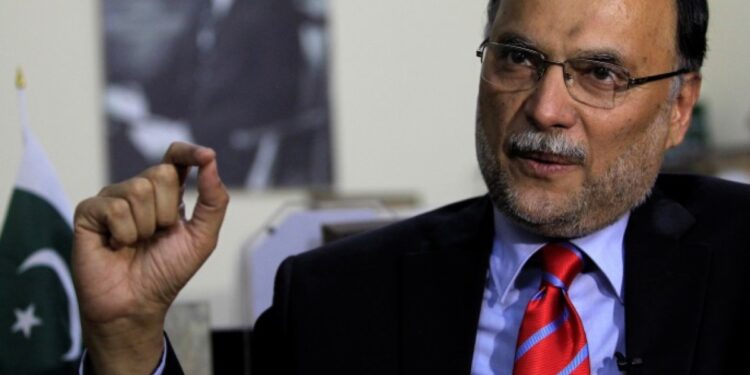In a move to boost its faltering economy, the Pakistani government is seeking to revitalize its participation in China’s Belt and Road Initiative, focusing on new joint projects and economic cooperation.
Bloomberg quoted Pakistani Minister of Planning, Development and Special Initiatives Ahsan Iqbal as saying that the country is looking forward to revitalizing projects within the framework of the China-Pakistan Economic Corridor, with the hope of launching its second phase soon.
Plans for renaissance and expansion
In an interview with Bloomberg, Iqbal expressed optimism about renewed Chinese interest in the China-Pakistan Economic Corridor, which has been seen as a pioneering phase of the Belt and Road Initiative since its inception.
“I am very optimistic because I was there in China recently and had meetings with their senior leadership,” Iqbal told Bloomberg. He mentioned plans to implement renewable energy projects, agricultural cooperation, and luring potential Chinese companies to move to Pakistan as key focus areas.
Since joining the Belt and Road Initiative in 2013, Pakistan has completed projects worth about $25 billion, especially addressing the country’s chronic energy shortages, according to the agency.
However, the project’s progress was halted due to the coronavirus pandemic and the ongoing economic challenges that followed, prompting the International Monetary Fund to intervene, Bloomberg notes.
Despite these setbacks, the Pakistani government has recently been able to boost key infrastructure projects, including the long-awaited railway modernization, which now has a budget of $6.8 billion, up from an initial budget of $10 billion.
Economic challenges and strategic transformations
Bloomberg says that the current economic scene in Pakistan is marked by a decline in growth rates and an increase in consumer prices.
The government is under pressure over delayed payments of China-financed power plants, and in response, Iqbal highlighted the strategic shifts planned for the second phase of the China-Pakistan Economic Corridor, which include reducing government involvement and enhancing private sector partnerships with Chinese companies.
This transformation aims to reduce some of the financial burdens on the state while enhancing direct cooperation between companies, according to the minister.
Attracting Chinese investments
Bloomberg notes that one of the ambitious aspects of the revitalized China-Pakistan Economic Corridor (CPEC) strategy is to attract Chinese companies looking to relocate due to rising labor costs and geopolitical tensions in China.
“This will be successful because currently more than 80 million jobs are being transferred from China to other countries due to the high cost there,” Iqbal said.
As neighboring countries such as Vietnam, Laos and Cambodia become crowded investment destinations, Pakistan aims to position itself as an attractive alternative for these relocating companies.
While Pakistani Prime Minister Shehbaz Sharif, who was elected for a second consecutive term last February, plans an upcoming visit to China, the focus will be on consolidating commitments and exploring new avenues within the framework of the expanded China-Pakistan Economic Corridor.



